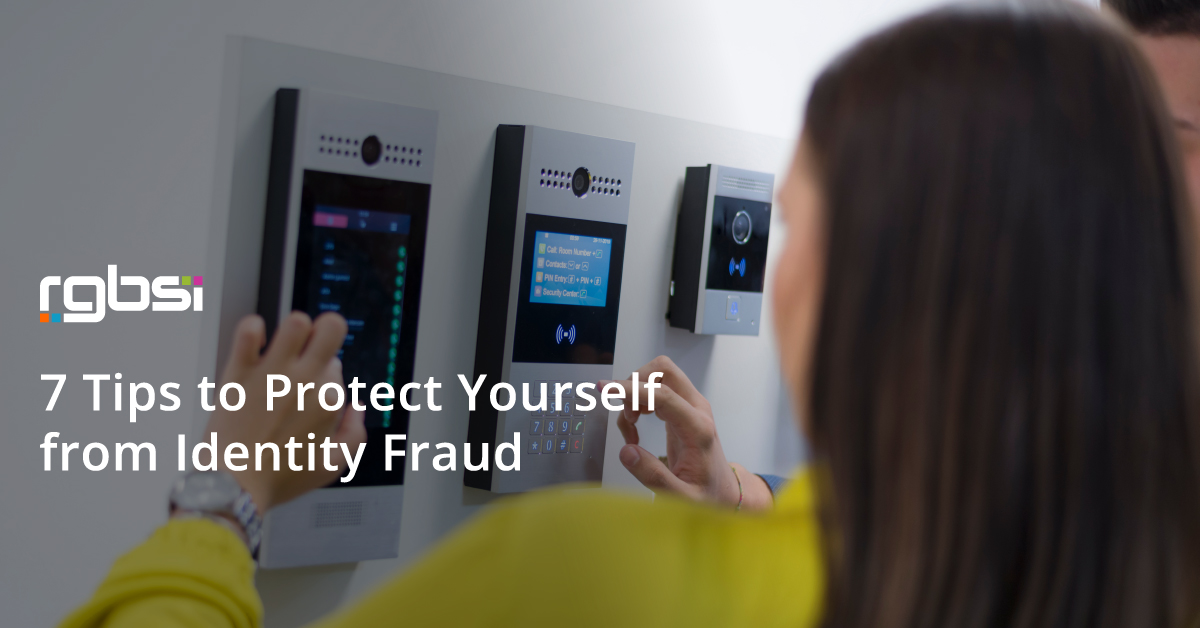
In today's digital age, personal identity fraud is becoming an increasingly common issue. Identity theft occurs when someone steals your personal information and uses it for fraudulent purposes, such as to open credit accounts and take out loans. It's important to take proactive measures to protect yourself. Here are 7 tips to protect yourself from identity fraud
1. Request an IP PIN with the IRS for Tax Filing
To protect your identity from tax fraud, you can request an IP PIN with the IRS. This creates an extra layer of safety for tax filing, where only you or an authorized/designated third-party or person can file taxes on your behalf. An IP PIN is valid for one year and new one is generated each year for your account.
- Get An Identity Protection PIN (IP PIN) - https://www.irs.gov/identity-theft-fraud-scams/get-an-identity-protection-pin
2. Regular Credit Monitoring
Regularly monitor your credit reports to make sure there are no unauthorized accounts or charges. You are entitled to one free credit report each year from each of the three major credit bureaus agencies: Equifax, Experian, and TransUnion. There are also several free tools available to help with credit monitoring.
- Request your free credit reports – https://www.annualcreditreport.com
- Free credit monitoring – https://www.creditkarma.com
3. Freeze Your Credit Report with Suspicious Activity
If you discover suspicious activity on your credit report, you can freeze your credit at any time for free. This prevents unauthorized individuals from opening new lines of credit in your name and restrict access to your credit report. The freeze will remain in place until you choose to lift it.
- Freeze your credit report by contacting each of the three credit bureaus (Equifax, Experian, and Transunion) - https://www.identitytheft.gov/#/CreditBureauContacts
4. Use Strong Passwords
Create strong, unique passwords for all your online accounts. Use a combination of letters, numbers, and symbols, and don't use the same password for multiple accounts. Enable multi-factor authentication for services that support it. This security feature adds an extra layer of protection by requiring two or more credentials to access your account. The credentials fall into two categories: something you possess, such as a passcode received through text message or an authentication app, or something you are, such as a scan of your fingerprint, retina, or face. Consider using a password manager to keep track of your passwords if your operating system doesn’t have a built-in one.
- Free password manager - https://www.lastpass.com/password-manager
5. Beware of Phishing Scams
Phishing scams are a common tactic used by identity thieves to trick people into giving out their personal information. Phishing scams typically involve an email or a phone call that appears to be from a legitimate source, such as your bank or credit card company. The email or phone call will ask you to provide personal information, such as your account number or password. You should never provide personal information in response to an unsolicited email or phone call. Instead, you should contact the company directly to verify the request.
6. Use Public Wi-Fi with Caution
When using public Wi-Fi, be cautious about the information you access. Don't login to sensitive accounts or enter personal information while on public Wi-Fi.
7. Secure Your Personal Information
One of the most important things you can do to protect yourself from identity theft is to secure your personal information. Keep your social security number, bank account numbers, and other sensitive information in a safe place. Don't carry your social security card with you, as it is one of the most valuable pieces of information that identity thieves can obtain. Always shred documents that contain sensitive person information when disposing of them.
In conclusion, personal identity fraud is a serious issue that can have harmful consequences. By following the tips in this article, you can take steps to protect yourself from identity theft. Get an IP PIN with the IRS, monitor your credit, use two-factor authentication, beware of phishing scams, use public wi-fi with caution, be careful with your social security number. Stay vigilant and always protect your personal information.
- Been a victim of identity theft? Here’s the next steps to take - https://www.identitytheft.gov/#/Steps
- Protecting personal information a guide for business - https://www.ftc.gov/business-guidance/resources/protecting-personal-information-guide-business
About RGBSI
At RGBSI, we deliver total workforce management, engineering, quality lifecycle management, and IT solutions that provide strategic partnership for organizations of all sizes. We leverage our expertise to fill workforce gaps and deliver full range business solutions that optimize client operations worldwide.










